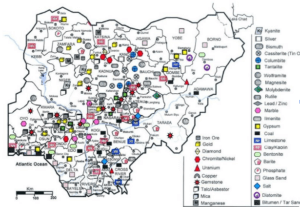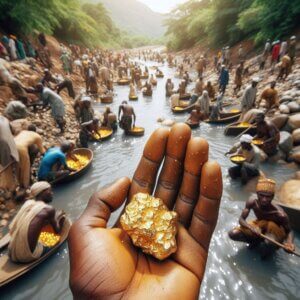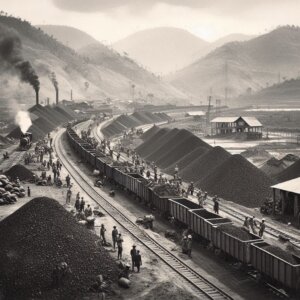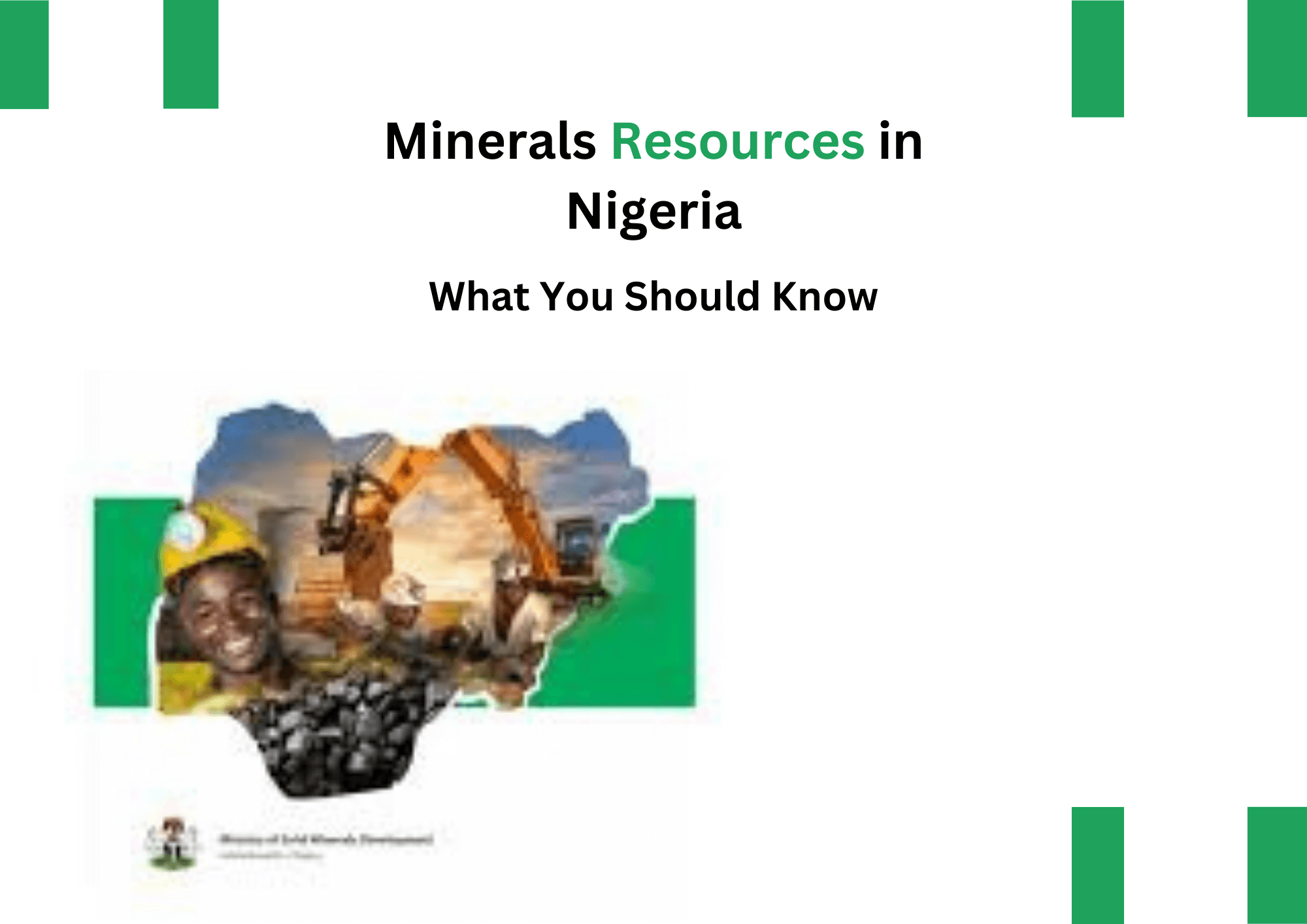Introduction
Imagine you’re walking through the bustling markets in Nigeria. You overhear conversations about the nation’s booming oil industry, but if you listen closely, you’ll hear whispers of something more. Nigeria is a land of untapped treasures. Under the soil lies an array of mineral resources that are shaping the nation’s future. This article takes you on a journey to discover Nigeria’s wealth beyond oil—its mineral resources.
An Overview of Nigeria’s Mineral Resources
Nigeria is blessed with over 40 different kinds of mineral resources spread across the country’s 36 states and the Federal Capital Territory. These minerals range from metals like gold and tin to industrial minerals like limestone and coal.

Image Credit: Researchgate
Major Mineral Resources in Nigeria
Gold
When it comes to gold, Nigeria is home to some promising deposits, especially in states like Osun, Niger, and Zamfara. Gold mining is increasing in popularity, and the government has been actively encouraging more local and international investors to explore these opportunities.
ALSO READ: Interesting stories

Fueling Nigeria’s Energy Future
Coal was one of Nigeria’s earliest energy resources. The discovery of coal in Enugu in 1909 played a crucial role in the development of Nigeria’s railway and cement industries. Enugu still holds large deposits, making it the nation’s “Coal City.”

Limestone
Limestone is abundant in Nigeria, particularly in states like Ogun, Benue, and Kogi. This mineral is important for the cement industry, which has become a major economic driver in these areas. The limestone industry employs thousands and contributes significantly to the economy.

Rare and Precious Minerals in Nigeria
Tin and Columbite
In Plateau State, tin and columbite mining have been essential parts of the economy for decades. Tin is a key ingredient in many metal alloys, and columbite is a vital element for creating heat-resistant materials.

Bitumen
Bitumen, also known as asphalt, is a naturally occurring substance that holds great potential for Nigeria’s road construction industry. The country is home to one of the world’s largest bitumen deposits, with the majority located in Ogun, Ondo, and Lagos States.
LEARN MORE: Read blogs and articles here!!!

Lead and Zinc
Nigeria has significant lead and zinc deposits, especially in states like Ebonyi and Zamfara. These minerals are used in the manufacturing industry, from batteries to metal alloys, and their mining has opened up employment and investment opportunities.
Benefits of Nigeria’s Mineral Resources
Nigeria’s diverse range of minerals offers immense benefits to the country’s economy, providing jobs, fostering industrial growth, and attracting foreign investment. As Nigeria continues to diversify its economy, mineral resources play a significant role in reducing the nation’s dependency on oil.
Conclusion
Nigeria’s mineral resources are a hidden treasure waiting to be fully tapped. By understanding these resources and investing in them, the nation can move toward a more diversified economy. Whether you’re an investor, a student, or just curious, exploring Nigeria’s mineral wealth gives you a glimpse into the potential that lies beneath the country’s surface.
Frequently Asked Questions
Q1: What are the main mineral resources found in Nigeria?
Nigeria is home to various minerals like gold, coal, limestone, tin, columbite, bitumen, lead, and zinc.
Q2: How many types of minerals are present in Nigeria?
There are over 40 different types of mineral resources spread across Nigeria’s 36 states.
Q3: Why is mining important to Nigeria’s economy?
Mining is crucial as it provides jobs, boosts local industries, and attracts foreign investors, helping to diversify the economy.
Q4: Which states are known for gold mining?
Osun, Zamfara, and Niger States are the most prominent gold-producing regions in Nigeria.
Q5: Where is Nigeria’s coal mainly found?
Nigeria’s coal deposits are primarily located in Enugu State, which is why it’s nicknamed the “Coal City.”

